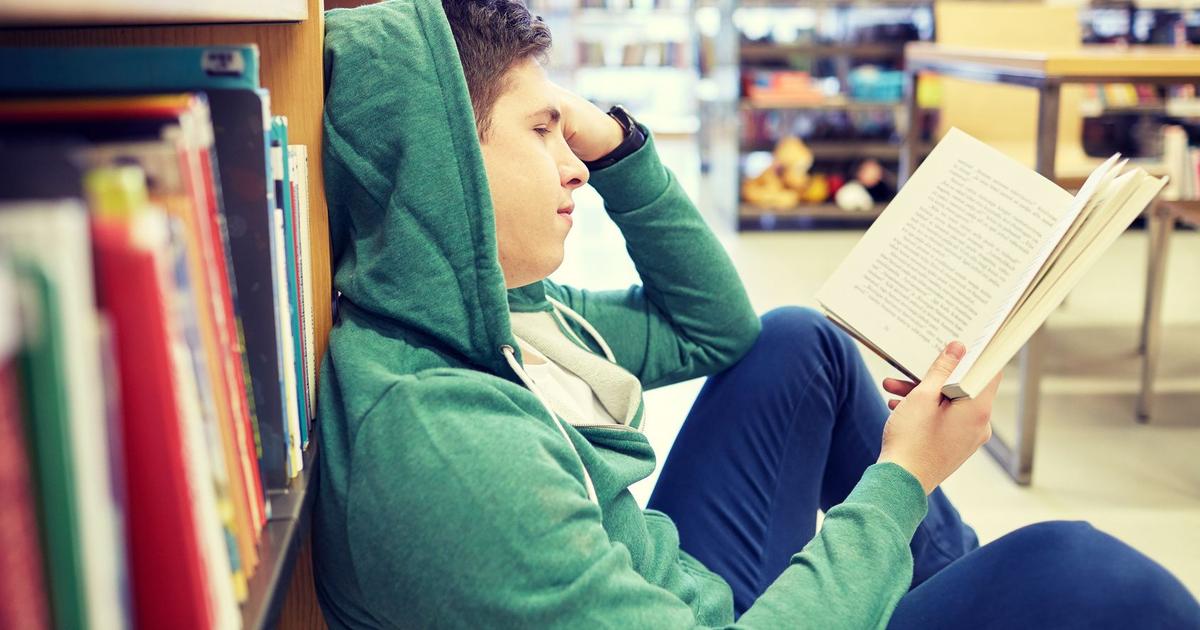Young people don't read anymore.
Reading does not interest them.
They spend most of their time staring at their smartphones.
How many times have we heard these complaints from parents?
In a survey by the Center National du livre, entrusted to Ipsos, from January 27 to February 6, 1,500 young French people aged 7 to 25 were asked about their relationship to reading.
The results are up on 2016. 83% of 7-19 year olds read for leisure, 5% more than six years ago.
Of all the young people surveyed, 81% also read for personal taste.
In the evening before going to bed, a favorite time to read
65% of these "leisure"
readers
open a book several times a week.
This habit increases by 20% among primary school students.
More than half of them devote themselves to this activity for less than half an hour.
Good news: the older they get, the longer they read.
From high school and up to age 25, the majority of them read more than 30 minutes.
The preferred time is in the evening before going to bed, a habit that affects 90% of readers.
70% of readers enjoy reading on public transport, and 32% of them choose the library as their favorite place.
To parents who no longer know what to give their child to stir up a taste for the pages we turn, know that 55% of 7-19 year olds are crazy about comics, i.e. 2% more than six years.
Mangas also take second place on the podium of favorite books, ahead of comics among 20-25 year olds.
And the novel in all this?
Girls and high school students largely give it their preference, since it comes first among all other genres.
Most often, young people choose a book on the advice of their family, or after seeing a film or a series, which whet their appetite to know more about history.
Science fiction and fantasy literature topped the list with 51% of followers, ahead of detective, spy and suspense novels.
Sentimental and love novels gather 40% of readers.
42% of 7-25 year olds buy books at least once a month, themselves or through their parents, at Fnac, at Cultura... and on Amazon, one of the leading places to buy .
However, libraries still have a bright future ahead of them, because it is there that 58% of primary school pupils and 51% of secondary school pupils obtain books.
Readers are readers
87% of girls read for pleasure, compared to 75% of boys.
Young women show a particular appetite for novels, while boys set their sights on manga.
58% of 20-25 year olds still read mostly novels.
Young working people are passionate about comics and manga, which come first in the type of favorite works.
The number of books read for personal taste in the context of leisure time declines over time, always remaining higher among girls, except between ages 16 and 19, where boys report reading more.
On average, young people read 3h14 per week, ie more than thirteen minutes among 7-19 year olds than in 2016. On the contrary, boys and less privileged households spend less than 3h reading during the week.
Mothers have an important role because they are mostly the ones who read stories to their children.
They are 39% to read more often than fathers, who peak at 17%.
Reading 2.0: read and send a message at the same time
Watch out for screens.
On average, all 7-25 year olds spend 3h50 a day in front of a screen.
The 20-25 year olds stay there for 5h33... and more than 2h50 on the internet.
If the confinements were a boon for these young readers, who satisfied their appetite during these exceptional moments, the context however benefited the screens more.
Young people have watched a lot of series, used their smartphone or played video games, a phenomenon that affects schoolchildren less than 20-25 year olds.
For the latter, it is clear that the screens invite themselves during their reading time: almost half of these young people do something else while they read: send messages, go on social networks, watch videos in turning the pages of a book...
The countless applications at hand have a negative effect on concentration.
These readers
"multitaskers"
are mainly high school students, working people and 20-25 year olds.
On average, readers say they have read 2.1 books for school or work over the past three months, compared to 5.4 books for leisure, a figure up slightly among 7-19 year olds.
It is in primary school and in the most privileged homes that young people read the most books.









